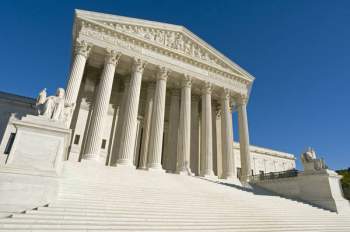
Exxon Corp. v. Governor of Maryland

Exxon Corp. v. Governor of Maryland: The Background
The case of Exxon Corp. v. Governor of Maryland began when the state of Maryland observed that certain oil producer-operated stations were receiving favorable rates from their refiners and producers. In response to this, the state passed a law which prohibited oil refineries or producers from operating gasoline stations within Maryland. This statute also required said producers and refiners temporary price cuts to the stations they supplied.
The Exxon Corporation challenged this local law in the Anne Arundel County Circuit Court. When filed, the statute was immediately ruled invalid. The Maryland Court of Appeals; however, reversed this ruling and kept the law as is.
Exxon Corp. v. Governor of Maryland: The Question
The case of Exxon Corp. v. Governor of Maryland asked two primary questions: 1.) Does the Maryland statute violate the Commerce Clause and the Due Process Clause of the United States Constitution and 2.) Does the Maryland statute conflict with the Robinson-Patman Act?
The Robinson-Patman Act of 1936 is a federal law that prohibits anticompetitive practices by producers. This law specifically aimed at price discrimination and was molded out of practices in which certain chain stores were permitted to purchase goods at lower prices than other retail units.
Exxon Corp. v. Governor of Maryland: The Conclusion
The United States Supreme Court in a 7-1 decision affirmed the Maryland Court of Appeals Ruling. The case of Exxon Corp. v. Governor of Maryland cited the previously-rendered Ferguson v. Skrupa, which established that the purpose of the judiciary is not to evaluate nor weight the wisdom of a state’s legislation. As a result of this decision, the courts found that the neither laws nor reactions concerned the due process clause.
The decision in Exxon Corp. v. Governor of Maryland ruled that the statute did not violate the Due Process and Commerce Clause nor did it conflict with the Robinson-Patman Act. Moreover, the decision in Exxon Corp. v. Governor of Maryland stated that since all gasoline sold in the state came from out-of-state refineries, the statute did not discriminate against interstate commerce. The United States Supreme Court acknowledged that while the price-slash provision conflicted with the purposes of the Sherman and Robinson-Patman Acts, the situations of price discrimination latent in the laws were speculative and not sufficient enough to invalidate the statute.



















